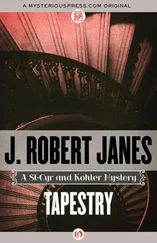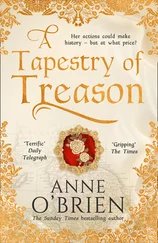Rhymes? asked the hakïm. Jokes and riddles?
Ah I’ve caught you haven’t I? Now listen to me retell your tale exactly as I heard it.
The little shepherd swelled himself up and began to hum. He rocked back and forth and whistled, spread his short arms and clasped himself, floated naked down the Tigris at night and swam the Red Sea and penetrated Mecca and Medina and tarried in Safad, walked twenty-five hundred miles to Timbuktu to meet the other Ya’qub and soaked his feet in Lake Chad coming and going, marched out of the Sinai oblivious to two sunsets and three sunrises and plotted the passage of a secret comet in north Arabia, conversed with an oily stationer and an ethereal dealer in antiquities while composing three hundred million words in a Jerusalem vault, acquired one empire and destroyed another and finally rode an elephant to a palace, finally sat down beside a fountain in the palace to rest, finally leaned back with a small cup of coffee to read the old new lines in the palm of his hand.
Do you see? said Ya’qub. Isn’t that how it was? Scraps from a magical book that’s always being written? Or was written once? Or will be written someday? Well I know all about that book, hakïm. What? Of course I do, I couldn’t have been more than three or four years old when I first heard people talking about it. But the point is, hakïm, why go on looking for it when we can write it ourselves? Or better yet, just talk it out in our old age? Why seek what can be lived? Could it be this very tent is the palace referred to in the tale? Don’t the two of us know enough by now? An old man who’s been nowhere, an old man who’s been everywhere? Between us all the gifts and marvels, every one? Now admit it, hakïm, you like this hillside don’t you? Of course you do and that’s why you’re going to stay here. There must be an Arab saying for that. What could it be?
The desire of the stranger is to his people, said the hakïm. Speed the stranger home.
Yes yes, good, speed the stranger home, that’s it certainly. Yet it took you more than sixty years you say, and that’s why you smile now when you look around your new home. Well that’s just one of His little riddles, where would the world be without a few riddles and scraps of rhymes? All solemn ceremony, nothing but grave purpose. Anyway, how good you must feel to be with your people at last, to be home at last. Surely that’s the greatest gift but one. No two.
And what are they, Ya’qub?
The first is the woman you love, the second is the child she gives you. But we don’t have to think about that because soon you will have both.
I will?
Of course, it’s in your eyes, nothing was ever clearer. Now just let me tell my daughter we have a guest for dinner, all this talk about faraway places has made me hungry. To find something at the end of the day that’s been lost, how sweet it is. But there you go again and not just smiling but laughing as well. Why laugh at a man just because he’s never been anywhere or done anything? There’ll be laughter enough when people see us out walking, your head in the sky and mine on the ground. We’ll look ridiculous together and they’ll laugh but no matter, it can’t be helped since that’s the way it’s going to be.
What is, Ya’qub?
What I glimpsed in your eyes just now, why were you trying to hide it? Your marriage to my daughter of course. One year from now or less, a son. But why are you laughing a third time, o former hakïm? Hadn’t you even read that in your lost book when I found you this afternoon? Didn’t you know it was written long ago that this hillside in the Yemen would one day be your home? That what you have been seeking so long is the peacefulness of this very tent?
We ourselves.
SOME THIRTY YEARS BEFORE the once great Generalissimo Wallenstein had become a fugitive in the mists of northern Bohemia, an Irish chieftain named O’Sullivan Beare was having his castle burned and his people slaughtered by the English in County Cork. He had no choice but to abandon his land and go on the run, which he did, from the south to the north of Ireland with one thousand of his people.
The month was January and the weather was severe as usual. Armies were in pursuit and the country was starving as usual. O’Sullivan Beare marched two hundred miles in fifteen terrible days and arrived in the north with only thirty-five survivors. After that heroic march the clan became famous in southwestern Ireland, where they were alternately known as the O’Sullivan Foxes when sober and cunning and the O’Sullivan Beares when drunk and blustering.
The bear and fox who would smuggle the first arms to the Haganah for Strongbow’s son was born on one of the tiny Aran Islands that lay to the west of the country, a barren windswept outpost in the Atlantic so poor it had never been gifted with soil. The island had never supported a population of more than a few hundred souls, yet over the centuries fully, one hundred saints had been born there. No area in Christendom had ever produced so many saints and it was generally believed this was because the place was so desolate its people had no choice but to be canonized or emigrate or stay drunk.
Or have large families, which they also did in abundance. Seven or eight children was normal and fifteen or twenty was not unknown, but Joe’s family was unusual because he was one of thirty-three brothers, the youngest, this enormous brood fathered by one poor fisherman who was himself the seventh son of a seventh son, which meant he had an infallible gift of prophecy when moved to use it. Given the traditional shyness of the islanders it wasn’t surprising he was so moved only when thoroughly drunk, which happened exactly three times a year, after mass on Christmas and Easter and June 14, the feast day of the island’s patron saint.
On those days a barrel of stout was set in the corner of the room and all the men in the neighborhood dropped in to dance and sing and tell tales, since Joe’s father was the undisputed king of the island, not only because he had the gift but also because he had thirty-three sons.
For young Joe there was magic in those special nights, the doings of the pookas and banshees and especially the little people, the trooping sly fairies who were seldom seen but often experienced, knee-high and dressed in bright green jackets and flat red hats and buckled shoes, mischievously passing the ages feasting and singing and holding their hurling matches brazenly on the strand. And then the doings of his brothers around the world with his father’s prophecies interspersed, supernatural events to a young boy growing up on a bleak and rainy slip of land in the Atlantic where the rest of the year was spent at sea in a canoe made of cowhide, fighting the cold waves to lay miles of nets before daybreak.
Wondrous and special evenings for young Joe until the most fateful of all prophecies arrived on that June night in 1914.
That evening his father had neither sung nor danced, in fact he hadn’t even spoken. Instead he sat by the hearth drinking and brooding until well after midnight.
Some of his friends made an effort at singing and dancing but nothing much came of it. The whole room was waiting for the king’s customary accounts of miracles past and future, and without them they didn’t know what to do. Yet still the king sat staring at the turf fire, downing his pints of stout and not saying a word.
It was ominous. This wasn’t the king’s way on a party night. Finally signs were made around the room in desperation and the oldest man among them broke the silence with a question.
Joe, would something be bothering you then?
Читать дальше












